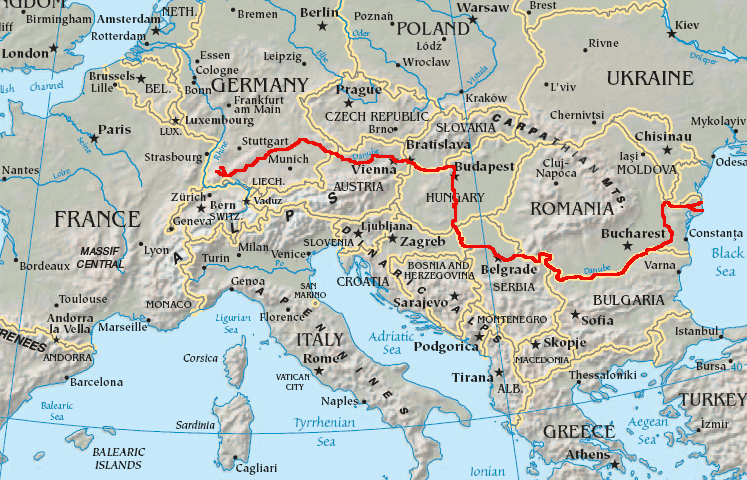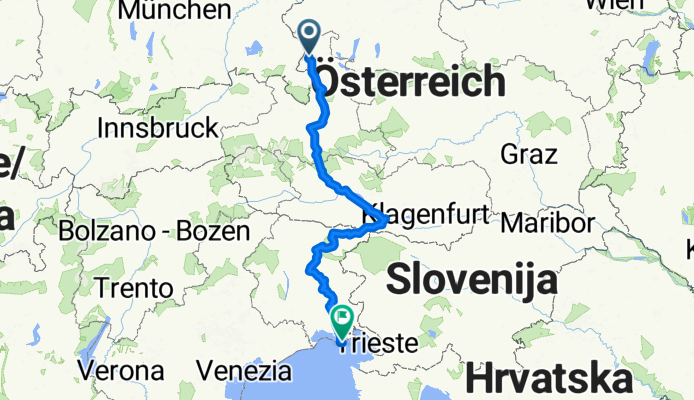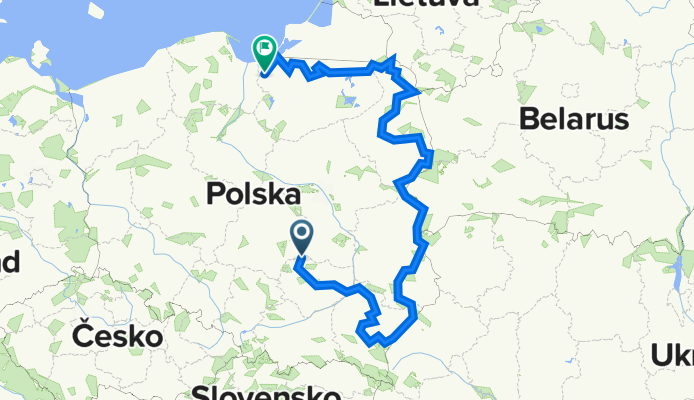Bike Touring in Europe: The Most Scenic Green Routes
- sgutmanaite
- Jun 16, 2025
- 3 min read
Explore Europe slowly and sustainably on two wheels.
Europe is a cyclist’s dream—with its blend of charming villages, diverse landscapes, and bike-friendly infrastructure. Whether you're pedaling along dramatic coastlines, through alpine valleys, or across rolling vineyards, bike touring offers a sustainable and immersive way to experience the continent. Below, we highlight some of the most scenic and eco-conscious cycling routes across Europe.

1. Danube Cycle Path (Austria to Hungary)
Distance: ~1,300 km (most popular section: Passau to Vienna)
One of Europe’s most iconic cycling routes, the Danube Cycle Path follows the gentle flow of the river through lush countryside, historic towns, and charming villages. With plenty of eco-lodges, organic eateries, and green-certified accommodations along the way, this route is ideal for slow, conscious travel.
Highlights:
Melk Abbey in Austria
Thermal baths in Budapest
Car-free cycling paths for long stretches

2. Loire à Vélo (France)
Distance: ~900 km
The Loire Valley is known for its fairy-tale châteaux, vineyards, and beautiful river views. This flat, well-marked route is perfect for leisurely cycling and includes many sustainable attractions and farm-to-table dining options.
Highlights:
Château de Chambord
Local organic wineries
Riverside eco-campsites

3. Camino de Santiago (Spain)
Distance: Varies (~800 km from Saint-Jean-Pied-de-Port to Santiago de Compostela)
While traditionally a walking pilgrimage, many travelers now bike the Camino for a more active yet still spiritual journey. The trail passes through northern Spain’s natural parks, historic towns, and small, locally run guesthouses.
Highlights:
Galicia’s misty forests
Organic pilgrim meals
Community-run albergues (hostels)

4. Ciclovia Alpe Adria (Austria to Italy)
Distance: ~410 km
This lesser-known gem takes you from the Austrian Alps to the Adriatic Sea. It's a mix of old railway paths, alpine valleys, and seaside routes, perfect for travelers seeking scenic variety and quiet roads.
Highlights:
Carinthian lakes
Julian Alps
Coastal towns like Grado with sustainable seafood and green accommodations

5. Baltic Sea Cycle Route (Germany to Denmark)
Distance: ~820 km (German section)
Also known as the Ostseeküsten-Radweg, this route hugs the Baltic Sea and passes charming fishing villages, sandy beaches, and UNESCO-listed towns. Denmark’s well-established cycling infrastructure makes this route particularly safe and accessible.
Highlights:
Lübeck’s old town
Danish islands and beaches
Eco-conscious guesthouses and organic bakeries

6. The Green Velo (Poland)
Distance: ~2,000 km
Stretching through eastern Poland’s lesser-visited regions, the Green Velo offers a rich cultural and natural experience. The route connects national parks, nature reserves, and small towns while promoting local tourism and conservation.
Highlights:
Biebrza National Park
Traditional Polish wooden architecture
Support for rural and eco tourism

7. Tuscany by Bike (Italy)
Distance: Varies (~300–500 km depending on route)
Explore the rolling hills, olive groves, and vineyards of Tuscany at your own pace. Cycling here means soaking in local culture, enjoying organic meals, and staying in agriturismos (farm stays) that promote sustainable agriculture.
Highlights:
Chianti wine region
Siena and San Gimignano
Seasonal farm-to-table cuisine

Tips for a Sustainable Cycling Trip:
Pack light and plastic-free. Use reusable water bottles and containers.
Stay local. Choose small, eco-certified hotels and support local businesses.
Use public transport to access trails. Most European countries allow bikes on trains.
Respect nature. Stick to marked trails and avoid disturbing wildlife.
Offset your travel emissions. Especially if flying to your starting point.
Conclusion
Cycling through Europe isn’t just a beautiful and healthy way to travel—it’s one of the most environmentally responsible. Whether you’re following the Danube or pedaling through Tuscan vineyards, you’ll be rewarded with deeper cultural connections and a lighter ecological footprint.



